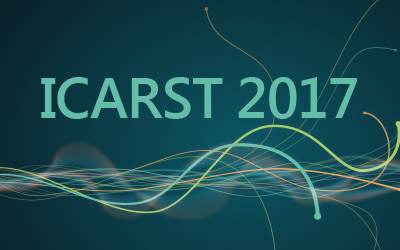Speaker
Mr
Beom Su Jang
(Advanced Radiation Technology Research Institute, Korea Atomic Energy Research Institute, Korea, Republic of)
Description
The RI-Biomics Center opened at ARTRI in the fall of 2013, and is a
facility dedicated to improving the quality of life by developing
advanced radioisotope applications in domains from basic biological
sciences to the pharmaceutical industry. The RI-Biomics Center
supports the research interests of a wide range of investigators from
multiple disciplines, including academic biomedical sciences and the
pharmaceutical industry, to elucidate the phenomena of life and
evaluate the pharmacokinetics of drug candidates and medical
bio-materials. We designed, build, and have put into routine use a
radioisotope based total analysis system to handle the needs of a wide
range of experiments from classic $^{3}$H, $^{14}$C
based pharmacokinetic studies to small-animal molecular imaging
studies using micro-SPECT/CT/PET, $7.0$ T small-animal MRI,
fluorescence optical imaging devices and autoradiography, etc.
The centre was designated as an Advanced Research Center for Nuclear
Excellence in 2012 for development of RI-Biomics Bio-sensing
application technology such as evaluation technology of life phenomena
using 3D-ADMET(3-dimensional absorption, distribution, metabolism,
excretion, toxicity study as advanced pharmacokinetic research),
development of high value drug/functional food/medical devices or
materials as well as advanced technology including GLP-like
non-clinical study for the contribution on the improving quality of
human life. The goal of RI-Biomics technology is to contribute to the
peaceful application of radiation and radioisotopes through the
development of advanced technologies for enhancing understand life
phenomena. In pursuit of this goal our research focusses on the
development of new technologies such as: a) SPECT/PET based 3D-ADMET
study and classic $^{14}$C/$^{3}$H based ADME study for
support the pharmacokinetic information of new drug or toxicant from
small synthetic chemicals to big biologics such as antibody,
biomolecules, nano-materials and polymers); b) Radioisotope based
biosynthesis of high value herbal resources used to alternative
medicine to support the advanced evaluation for traditional medicines;
c) Study of radiation effects on the living organisms such as
microorganisms, cells, plant and experimental animals such as fishes
and rodents; and d) Development of experimental systems for the study
of radiation or radioisotope application such as screening the highly
radiation-sensitive experimental animals, etc.
In addition, we are involving the professional and public education
systems with the University of Science and Technology (UST), Korea
Association for Radiation Application (KARA) and National Research
Foundation of Korea (NRF), etc., to contribute the enhancing public
acceptance for radiation. In the future, we will start a programme
sharing the effects of radiation on living organism and environment to
enhancing the public acceptance of nuclear & radiation technology.
After the Fukushima Daiichi nuclear disaster
the public were seized with fear surrounding nuclear and radiation
application. Currently we propose convergence research to
enhance the public acceptance.
| Country/Organization invited to participate | Korea, Republic of |
|---|
Author
Mr
Beom Su Jang
(Advanced Radiation Technology Research Institute, Korea Atomic Energy Research Institute, Korea, Republic of)
Co-author
Mr
Sang Hyun Park
(ARTI/KAERI, Korea, Republic of)

